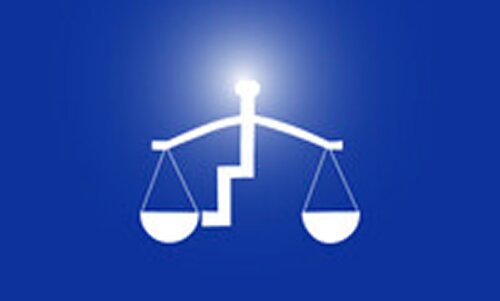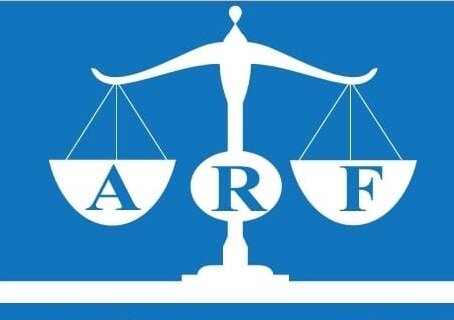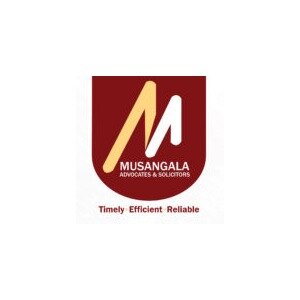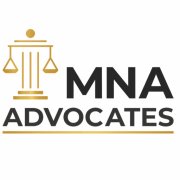Best Constitutional Law Lawyers in Uganda
Share your needs with us, get contacted by law firms.
Free. Takes 2 min.
Or refine your search by selecting a city:
List of the best lawyers in Uganda
About Constitutional Law in Uganda
Constitutional Law in Uganda governs the interpretation and application of the national constitution, which is the supreme law of the land. Adopted in 1995, Uganda's Constitution provides the framework for government operations, fundamental human rights, the separation of powers, and the rule of law. It embodies principles that ensure democracy, justice, and liberty for all citizens. Constitutional Law cases often involve issues such as the protection of individual rights, the powers of government bodies, and the legal processes that must be followed to ensure compliance with the Constitution.
Why You May Need a Lawyer
There are several situations where individuals may require legal assistance in Constitutional Law:
- Human Rights Violations: If you feel that your fundamental rights, such as freedom of expression or assembly, have been infringed upon, a constitutional lawyer can help you seek redress.
- Disputes Involving Government Actions: Instances where government policies or actions are challenged as unconstitutional often require legal expertise to address effectively.
- Constitutional Interpretation: When interpretation of the Ugandan Constitution is needed to clarify legal matters, attorneys specializing in Constitutional Law provide necessary insights and arguments.
- Election-Related Litigation: Legal challenges related to electoral procedures and outcomes often involve constitutional questions.
- Review of Legislation: Ensuring that newly enacted laws conform with constitutional provisions may necessitate legal intervention.
Local Laws Overview
The Ugandan Constitution is the foremost legal document and its interpretation impacts various laws and policies. Key aspects include:
- Chapter Four: Often referred to as the Bill of Rights, this chapter outlines fundamental rights and freedoms that must be protected.
- Separation of Powers: The Constitution establishes clear divisions between the legislative, executive, and judicial branches of government to prevent abuse of power.
- Decentralization: The Constitution supports local governance and outlines powers for local government to foster closer accountability and democracy.
- Judicial Independence: Ensures that the judicial system functions without interference from other government branches, upholding fair justice.
- Amendment Process: Provides the legal approach for constitutional amendment, ensuring that any changes respect democratic principles.
Frequently Asked Questions
1. What is the purpose of the Ugandan Constitution?
The Ugandan Constitution serves as the fundamental legal framework governing the country. It outlines the structure of government, protects individual rights, and establishes the rule of law.
2. How can I protect my constitutional rights?
If you believe your rights have been violated, it is crucial to seek legal advice from a professional skilled in Constitutional Law. They can guide you on steps to challenge violations and seek justice.
3. What role does the Constitution play in elections?
The Constitution sets the parameters for electoral processes, including how elections are conducted, eligibility criteria, and dispute resolution mechanisms.
4. Where can I find the text of the Ugandan Constitution?
The Constitution can be accessed online on government websites, and copies are also available at legal libraries and law chambers around Uganda.
5. What is judicial review?
Judicial review is the process by which courts evaluate the legality of legislative and executive actions. It plays a crucial role in upholding constitutional law.
6. Can the Constitution be amended?
Yes, the Constitution can be amended but requires adherence to specific procedures outlined in the document itself to ensure that amendments are in line with democratic values.
7. How does the Constitution address human rights?
The Ugandan Constitution includes a Bill of Rights that enumerates protections for civil liberties, social and economic rights, and provides for their enforcement through the courts.
8. What agencies are involved in upholding constitutional law?
The Judiciary is the primary agency responsible for interpreting and enforcing constitutional law, alongside relevant government ministries and the Uganda Human Rights Commission.
9. How can constitutional law impact everyday life?
Constitutional law impacts many aspects of everyday life by safeguarding individual freedoms, influencing government policies, and ensuring accountable governance.
10. Where can constitutional disputes be resolved?
Constitutional disputes may be resolved in the Constitutional Court or other competent courts within Uganda’s judicial system.
Additional Resources
- Uganda Constitution: Available on government and educational websites for reference.
- Uganda Law Society: Offers guidance and resources about legal rights and accessing legal services.
- Public Interest Law Clinic (PILAC): Provides legal support in issues concerning public interest and rights protection.
- Uganda Human Rights Commission: Advocates for human rights and can provide assistance in rights-related matters.
Next Steps
If you need legal assistance in Constitutional Law, consider the following steps:
- Research: Begin by familiarizing yourself with the Constitutional Law issues that pertain to your situation.
- Consult Professionals: Reach out to constitutional lawyers or law firms with expertise in the area for a professional opinion and representation.
- Engage with Legal Bodies: Contact organizations like the Uganda Law Society or relevant governmental bodies for further support and information.
- Documentation: Ensure all relevant documents and evidence are organized to support your case.
Lawzana helps you find the best lawyers and law firms in Uganda through a curated and pre-screened list of qualified legal professionals. Our platform offers rankings and detailed profiles of attorneys and law firms, allowing you to compare based on practice areas, including Constitutional Law, experience, and client feedback.
Each profile includes a description of the firm's areas of practice, client reviews, team members and partners, year of establishment, spoken languages, office locations, contact information, social media presence, and any published articles or resources. Most firms on our platform speak English and are experienced in both local and international legal matters.
Get a quote from top-rated law firms in Uganda — quickly, securely, and without unnecessary hassle.
Disclaimer:
The information provided on this page is for general informational purposes only and does not constitute legal advice. While we strive to ensure the accuracy and relevance of the content, legal information may change over time, and interpretations of the law can vary. You should always consult with a qualified legal professional for advice specific to your situation.
We disclaim all liability for actions taken or not taken based on the content of this page. If you believe any information is incorrect or outdated, please contact us, and we will review and update it where appropriate.
Browse constitutional law law firms by city in Uganda
Refine your search by selecting a city.

















